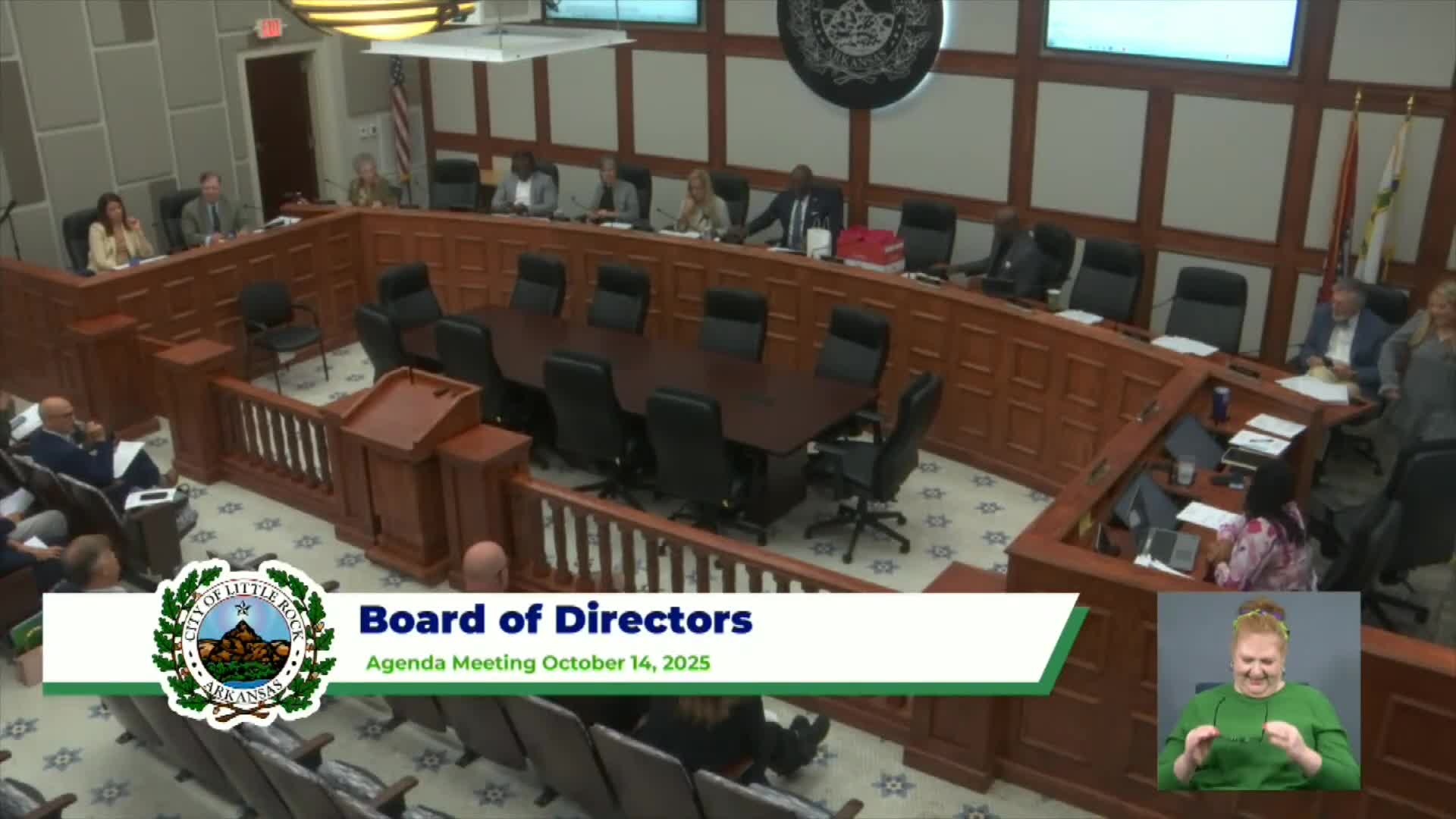Disparity study finds substantial underutilization of firms owned by people of color and women in Little Rock contracting
Get AI-powered insights, summaries, and transcripts
Subscribe
Summary
Sameer Bawa, managing director with BBC Research and Consulting, told the Little Rock Board of Directors that the 2025 disparity study examined about $160 million in city prime and subcontract awards from 2019 through 2023 and estimated the marketplace availability of firms in a six‑county relevant market.
Sameer Bawa, managing director with BBC Research and Consulting, told the Little Rock Board of Directors that the 2025 disparity study examined about $160 million in city prime and subcontract awards from 2019 through 2023 and estimated the marketplace availability of firms in a six‑county relevant market.
"One of the core analyses ... is designed specifically to calculate the percentage of dollars that the city awarded to small and disadvantaged businesses," Bawa said, summarizing the study’s methodology and data sources. BBC matched contract characteristics to firm characteristics to estimate how much city work the market could reasonably support.
The study found that 88% of city contracting dollars went to firms that were neither owned by people of color nor by white women, while the remaining 12% was split across minority and women‑owned groups. When compared with estimated availability, BBC reported substantial disparities for every group examined — a result the presenter described as falling in the industry’s "red zone," where participation is 80¢ or less for every $1 of availability.
"For every $1 we would expect them to receive based on their availability for city work, they actually received 15¢," Bawa said of white women‑owned firms, citing one example of the disparity indices presented. He said Black‑owned firms showed relatively better outcomes but still fell below parity (about 63¢ on the index).
Bawa and city staff emphasized that the numeric disparities do not prove intentional discrimination by the city. "These studies are not meant to indicate or infer that the city itself is explicitly or directly discriminating," Bawa said; rather, he said the analysis identifies systemic barriers in the marketplace that lead to underutilization.
On policy responses, BBC proposed a race‑ and gender‑neutral small‑and‑local business enterprise program. The firm recommended tiered certification (for example, SB1 for firms with annual revenue ≤ $500,000 and SB2 for firms ≤ $3,000,000) plus location certification, subcontracting goals, condition‑of‑award requirements and targeted set‑asides or contract sizing to make opportunities digestible for smaller firms.
Nick Sarpi, the city’s chief financial officer, and board members pressed BBC on legal constraints after Arkansas’s legislative change (referred to in the presentation as Act 116) that prohibits the use of race‑ or gender‑based considerations in government operations. Bawa said the law affects how the city can implement measures but does not make data collection or monitoring illegal and that carefully designed race‑neutral measures can be legally defensible and targeted.
Board members raised operational barriers that the study identified from interviews: delayed payments (prompt‑payment issues), insurance and bonding costs that may be disproportionate for small firms, and closed subcontracting networks that tend to favor established incumbents. Bawa and Sarpi said those findings are detailed in the full report and that staff will provide Little Rock–specific breakdowns on request.
The board requested the full report and asked BBC to provide the study’s localized (Little Rock–only) results. BBC and city staff said they would supply the packet and follow up with additional analysis and next steps.
Ending: City staff will bring the final report and any follow‑up recommendations back to the board for consideration; no formal board action was taken during the presentation.
